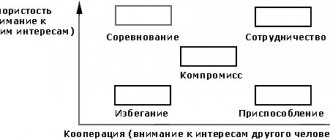An unsuccessfully pronounced phrase can cause conflict in the family, at work, in friendship, and also when talking with a stranger. Therefore, a considerable amount of literature has been written on the topic of communications between people. However, before we learn how to express ourselves correctly, let's look at how to improve your vocabulary. After all, it is impossible to build sentences and formulate thoughts if there are no basic building blocks, which are words. Because it is from words that people construct sentences.
If you think that your vocabulary is quite enough to communicate and express your thoughts, most likely you have forgotten that there is no limit to perfection. For a visual example, I will give a few phrases below, think about them.
- I went to the store.
- I rode my bike to the nearest supermarket.
- I went to the nearest store to buy fresh fruit.
Do you see the difference? These are just 3 different answers to the question “where have you been?” And if you are telling a story to someone, you can embellish it by turning on your imagination. For example, “furiously squeezing the gas pedal of my old bicycle, I rushed headlong to the nearest supermarket to supplement my daily diet with fresh fruit, and on the way...” And so you can compose a whole fascinating story. What am I getting at? If the storyteller has a rich vocabulary (aka vocabulary) and great imagination, then he can tell a story for a very long time and fascinatingly. By the time he finishes his story, it may already be night! People whose vocabulary is replete with copious censor words are interesting to listen to. Take, for example, a person who says this: “Well, I just... uh... went to the store to buy these... uh... well, those that eat, well, these... like vitamins... fruits, yeah.” It’s hard to listen to someone like that to the end, and he himself will be surprised if his listeners don’t disperse before he explains himself. So, if I convinced you, then let's move on. Not to the store by bike, no, read on =)
Our vocabulary, like that of any other person, depends on the words that we use every day in our everyday speech. The words we regularly use are the basis of how we communicate with other people. If our vocabulary is rich in words with synonyms, then we can formulate messages more clearly. And not only text ones.
However, there is an opposite popular belief that a person’s rich vocabulary will certainly include complex, rarely used and highly specialized words (it’s not always possible to even read such words; it’s easier to memorize a tongue twister). But knowing complex words does not mean that you need to use them everywhere in order to show off your intelligence. Just the opposite. Using your intelligence and having an extensive vocabulary with a bunch of synonyms, you can choose which words are best to use in a conversation with specific people in order to express your thoughts more clearly or to understand what the interlocutor is talking about. For example, knowing the meaning of medical terms, it will not be difficult to better understand the doctor and, perhaps, he will even decide that you are from the medical field and will be imbued with respect for you.
Expanding a person’s vocabulary is associated by some people with hard mental work. But this is just an illusion that our brain creates. He is lazy by nature and does not like to exert himself. “Why do something if you don’t have to do it?” - that’s exactly what our brain thinks. The most important thing is to get into the habit of expanding your vocabulary every day. The first few days you will want to give up everything, but you need to continue training.
Get rid of parasitic words
Make room for new expressions. Eliminate from your speech “uh-uh”, “well”, “as if”, “that’s the same” and the like, as well as obscene language and clichés. Send them overly meaningful expressions like “really”, “fuck” and “cool”.
The trouble with them is that they can replace a significant part of the vocabulary and make speech poor.
Be aware of unwanted words. Record your own speech on a camera or voice recorder, imagine that you are at an interview or presentation. Reread your social media posts.
Analyze all this and write down the words and expressions that you want to get rid of. Share this list with a friend or colleague, ask him to pull you down every time he hears forbidden language.
How to improve your vocabulary
Using new words
Make it a rule, as soon as you learn a new word, to immediately use it in speech, correspondence with friends and in any other situation. Treat it like a game and try to use the new word as often as possible, then it will quickly enrich your vocabulary.
Daily Reading
Create an account on a social network for book lovers (I did it on goodreads) and set goals for yourself - how many books you want to read and which ones. Leave reviews of the books you read, collect quotes, communicate with like-minded people and mark your favorite books. Based on your book rating, the system will start making recommendations for you. In addition, there are many book apps where you can read books with a subscription.
By the way, I am the type of person who does not read books from the screen of a gadget or monitor, because... eyes get tired quickly. That is why, about 10 years ago, I bought myself a Kindle e-reader with electronic ink. And I was incredibly happy. In the first year I read more than 80 books. Of course, this number also included short stories. An e-book is better than a paper one in that it takes up less space and is convenient to hold and flip through with one hand. Since we are talking about how to expand your vocabulary, you can use your second hand to write down new words that you come across in a book or to take notes on your thoughts. Someday I’ll write a post about how to read books effectively and remember what you read. Now the point is that reading should be regular. Take 20-30 minutes and find a book that you like. As a rule, each author has his own vocabulary, which is repeated in all his books. By the way, this is why, when learning a foreign language, it is recommended to first read books by one author in order to get used to the words and phrases that he uses. Why is it necessary to do this daily? It's simple - that's how memory works. If you want to remember something, you need spaced repetition. You can read about short-term and long-term memory. In short, the received information first appears in short-term memory and in order to move it to long-term memory, spaced repetitions are necessary. According to research, about 90% of information is forgotten within an hour.
Exploring roots
Determine the root of the new word. Perhaps you are familiar with it, but the difficulty arose due to the added prefix or suffix. Look carefully at the structure of the word in search of words with the same root; in some cases, the meaning of the word immediately becomes clear. For example:
- complex
- compound
- complication.
Also, do not forget about words with homonymous roots, for example:
- put
- pseudopods
- urgent
- the above
Using a thesaurus
Keep a thesaurus handy. The most convenient way is on a mobile phone. It is very useful in cases where you find yourself using the same word too often or not knowing its exact definition. Using a thesaurus not only helps you express your thoughts better, but also helps you learn new words.
Compilation of a practical dictionary
Everything is very simple. It is necessary to write down a list of new words from the area that is being studied at the moment. Be it a work area, a hobby or even travel (for example, the name of the delicious dishes of the country you are going to, or the local jargon).
Learning new words every day
To replenish your vocabulary as quickly as possible, you will have to make a little effort and develop the habit of learning a new word every day. There are many ways to do this. For example, you can search on social networks using the hashtag #vocabulary or subscribe to a newsletter with new words, or, the simplest thing, open a dictionary / encyclopedia / thesaurus and learn any word you like from there. Also, do not forget that learned words must be repeated periodically so that they are consolidated in long-term memory. For this purpose, I can recommend the Anky application; I used it before to memorize foreign words. It is very suitable for learning words in any language. The principle of its use is simple - create a card with the word you are studying and its meaning (you can attach images). In the program settings you can set the repetition interval.
Search for unfamiliar words
How often do you come across unfamiliar words while reading a book or listening to a lecture? And how do you deal with them? Are you looking for their meaning or just passing by? If you want to expand your vocabulary, you should never ignore them. Google it, write down the meaning of a new word somewhere in your cell phone notes, or in the Anky app, or whatever, and return to it periodically and repeat until it is firmly imprinted in your memory.
Journaling
Keeping a diary not only helps improve your vocabulary, but also allows you to learn how to correctly express your thoughts by developing your own writing style. Try to use new and interesting words that you have recently learned while writing in your journal. It is recommended to do this daily.
Catching empty words
In the vocabulary of each of us there are so-called “parasitic words”, they are also called “empty”. I think you already guessed what it’s about (such as “uh”, “um”, “ahh”). Try to catch them in your speech (pumping awareness through meditation is very good for this purpose) and replace them with something more meaningful. The same can be said about phrases and sentences. Sometimes, instead of 7-8 phrases, it is enough to use one - a more concise and meaningful way to convey the essence of your thoughts if you choose your words carefully.
Diversifying your reading list
What? What other diversification? What kind of compound word is this? I’m not an investor, you say. In our case, diversification means expanding your vocabulary in different areas. Diversify the topics you read to include science, classic literature, philosophy, or any other topics that bring you pleasure. Plus, you never know what area you might be interested in, so don't limit yourself and your book preferences. A warm-up is useful for the brain, if you have always avoided economics, try reading “Economics” (a very cool comic book on economics, a lot of things are explained in simple words) or plunge into neurophysiology by reading “Neurocomics” (read it avidly, lots of illustrations and excellent presentation of the material).
Solving word search problems
Guessing words in a magazine or newspaper is not just a way to have fun, but quite a good way to recharge your active vocabulary. Solving crossword puzzles or scanword puzzles (personally, I prefer scanword puzzles) is an excellent opportunity to challenge the brain and force it to strain to find a word in the depths of memory that is known, but is not used in the active vocabulary. This kind of exercise helps to move already familiar, but forgotten, words from the memory bank (passive lexicon) to the working (active lexicon).
Try board games
There are a huge number of fun word games that are designed to improve vocabulary and language skills. Many of us had a chance to play some games in our distant childhood, now it’s time to remember and return to them. If you have a friend who can keep you company, this is a great reason to take advantage of this, and even better when you have several acquaintances. Now we are not talking about getting together in a crowd and doing crossword puzzles together, although that is not a bad idea. No, we're talking about board games now. For example, the world famous game Alias, which can be bought in many bookstores or downloaded as a free application on your phone. I must admit that I played the desktop version only once, the rest of the times I was content with the mobile application. I recommend.
Practice new words by repeating them
Typically, it takes 10 to 20 repetitions for a new word to take root in a person’s vocabulary. One can doubt the number of repetitions, remembering how quickly obscene words are remembered, but this is not about them. To better memorize words, it is recommended to write them down on paper or somewhere else, along with their definition, and you also need to use them more often in speech or correspondence.
Creation of associations
Start by saying a new word out loud, then build an association with a word you already know. For example, the word “remarkable”, for some it may cause an association with the number twelve, and this would be a mistake. Remarkable means “huge”. Say it out loud, and then also say out loud the chain of words: tiny, small, ordinary, large, huge, remarkable. Then, either mentally or on paper, make a list of expressions that use the word remarkable (or another word you want to remember).
Using mnemonics
Mnemonics are a kind of trick for remembering something quickly and easily. As an example of mnemonics, you can use the phrase “every hunter wants to know where the pheasant sits.” Thanks to this phrase, remembering the location of the colors in the rainbow is not difficult. Since the first letter of each word means a color in the rainbow (red, orange, yellow, green, blue, indigo, pheasant). However, this color scheme will not work for every language; for example, the English language simply does not have the color blue. Another life hack for remembering the words “even” and “odd” in English (even and odd). The word “even” consists of an even number of letters, and the word “odd” has an odd number. That's what we remember. Easy, right? You can also use sound associations and imagination in mnemonics. The more absurd the image, the more firmly it will stick in the memory. And at school, many of us memorized exception verbs to the conjugation rules by writing a poem - “drive, hold, look and see...”. And also “gypsies on tiptoes...”, etc.
Visualization of new words
Research shows that the best way to remember words is to visualize them along with their meaning. For example, the word “mind-blowing” can be thought of as two words: “mind” and “dark.” We imagine the “mind” with a picture of the brain, which begins to “gloom” at the sight of something unusual. Voila, a new word has been added to the vocabulary. But do not forget that it must be repeated so as not to forget.
Creating a Personal Vocabulary Test
Writing down new words on a piece of paper or in an application on a mobile phone and constantly repeating them, as well as using them in writing and in spoken language, allows for better consolidation of words in memory. But it wouldn’t hurt to do self-testing. At the end of the week, take a piece of paper and try to remember all the new words, putting them in writing, relying only on your memory, and then see which words you couldn’t remember. This exercise allows you to use motor memory, which will only strengthen the memorization of new words.
Creating a dictionary of synonyms
Have you ever caught yourself repeating the same word over and over again in speech or writing? To avoid this, there is a synonym sheet. When writing this article, I also have to use a dictionary of synonyms, but still, I repeat myself quite often. Take a piece of paper, write at the top a word that you often use and write down its synonyms, ten to fifteen words will be enough. It's best to keep this list somewhere nearby, such as on your mobile phone.
Taking courses
In the modern world, there are a huge number of courses on how to correctly express your thoughts. These courses also help expand your vocabulary and help you learn how to use new words correctly. Surely there are some free writing or speaking courses.
Moving words from passive to active
Every person has two types of vocabulary: active and passive. Active vocabulary consists of words that a person constantly uses in his speech. Passive vocabulary also includes words from everyday speech, but in addition to them, it contains words whose meanings are familiar to a person, but he does not use them in conversation. By moving words from passive to active, we, in a sense, expand our vocabulary. But before using words from the passive vocabulary, you need to make sure that you know their meaning well, otherwise the phrases you say will sound illiterate. Also, do not forget about the correct stress in words.
Poll of someone else's opinion
One way to test your vocabulary is to ask others. Write an informative post on a social network and ask the opinions of others about how well they think your post expresses thoughts, whether some words can be replaced, and what can be improved. Surely, someone will offer interesting synonyms or rearrange the sentence more competently.
Carry a dictionary and encyclopedia with you
How often do you have free time when you have nothing to do? Of course, you can play a toy on your mobile phone or scroll through your feed on a social network. But it will be much more useful if you carry an encyclopedia or thesaurus with you, and every time you have nothing to do, while waiting in line or sitting at a bus stop, take out your pocket reference book and start improving your vocabulary. If the paper version is inconvenient to carry with you, then you can always use the mobile application (“Language Glasar”). In addition, having a dictionary at hand, you can always look up the meaning of an unfamiliar word that suddenly appears in your life. I don't think this happens often, but it is still possible. Spend your time usefully, add new words to your vocabulary.
Use of university tests
A great way to test your vocabulary is to take university Russian language tests. There is a high probability that unfamiliar words will be encountered in such tests. It is possible that most of the words will be familiar, but you do not use them in active speech. You already know what to do with such words - start moving them from the passive vocabulary to the active one. And how - read above.
Playing games
In addition to board games, there are a huge number of mobile apps for vocabulary practice. Try searching the play store for fun word games. Some games are aimed at improving vocabulary, and some are aimed at practicing spelling, punctuation, phonetics and even speed typing. You can also try looking for games to prepare for Russian language exams. Here are a few of them:
- Letters
- Spelling
- Philwords
- Alias
Studying slang and jargon
The use of slang and various kinds of jargons is unlikely to contribute to how to correctly express your thoughts, but it will perfectly contribute to understanding the interlocutor or what is written about on the Internet.
Practice the art of brevity
Who doesn’t know the old hackneyed expression “Brevity is the sister of talent”? Expressing a thought succinctly is a real art. Many people use the same words in their speech and writing (remember what I said above about writers and books?). Such repetition will become boring over time. Knowing different synonyms will allow your speech to sound different every time. The main thing is to know what the spoken word means, and not to use random words that are spinning in your head.
Connect with people different from you
Your usual social circle is constantly “cooking” in the same vocabulary, because you have the same interests and topics for discussion. You've probably noticed that when someone in your company finds another job or meets new people, their speech changes. He sprinkles unusual words, jokes, and even the manner of conversation can become completely different.
Every new person changes you. Therefore, strive to constantly expand your circle of acquaintances. Chat at the gym, in the store, attend more events and find people to talk to on the Internet. Don't push away those who are different from you.
Scanwords and crosswords
There is a common opinion about the uselessness of scanwords: they are only suitable for security guards in supermarkets.
In fact, scanwords and crosswords allow you to learn a lot of new words, often unusual ones, and, at the same time, understand their meaning. A simple newspaper or smartphone app will help improve your analytical skills and expand your vocabulary arsenal.
Write
Start a personal diary or blog on social networks. Write down your thoughts and events every day in great detail. Write about your goals and desires, come up with stories and stories. When communicating with friends, avoid jagged messages and do not use emojis instead of words.
First, writing is a great way to apply and reinforce what you've learned. Secondly, if you write by hand, this will help The Pen Is Mightier Than the Keyboard: Advantages of Longhand Over Laptop Note Taking remember new words even better.
About words
We often hear the expression “can’t put two words together.” The phrase is very offensive, and no one would like to hear it addressed to them.
Meanwhile, the current state of affairs is very depressing. Our vocabulary has been depleted to a measly 5,000 – 7,000 words. And the Russian language contains about 500,000 roots. This refers to sonorous words filled with meaning.
It would seem, for what purpose should one increase vocabulary? We can express our thoughts, choose a synonym to replace a forgotten word, and, in general, convey to our interlocutor the meaning of what was said.
However, the more extensive the vocabulary, the easier it is for a person to contact any audience.
If the audience is represented by smart, well-read people, a rich vocabulary will allow you to stand on the same level with them. And if the public is rather limited in perception, the lexicon will throw up simple words that allow you to explain the essence without unnecessary farce.
In any case, bright, varied speech charms, attracts and disposes. A well-spoken interlocutor has an undeniable advantage. By the way, according to studies, an extensive vocabulary significantly increases competitiveness.
We will talk about the most effective ways to replenish your vocabulary, which, moreover, bring joy and broaden your horizons.
Use cards
If you can’t remember a very complex and interesting word, use the flash card method. Many people have been familiar with this method since school.
On one side of the card you write the word, on the other - its meaning. First you need to try to remember the answer yourself, and then turn the element over and test yourself.
This method is very simple and effective: the memorization process begins with preparation. Therefore, it is better not to use applications, but to create cards yourself and write on them by hand. And you can take a small stack with you anywhere.
Reading
Reading is one of the best ways to increase your vocabulary.
Of course, we are talking about quality literature, and not about cheap heart-warming novels or monotonously meaningless detective stories.
High-quality literature means not only domestic and foreign classics. Someone will like the 4th volume of “War and Peace”, and someone in the process of reading this will want to repeat the fate of Anna Karenina. Reading should be a pleasure, you just need to find an author you like. Evgeny Grishkovets, Boris Akunin, Sergei Lukyanenko - this is a small list of modern authors whose works are worth paying attention to.
Exercise
- Make sentences where each word begins with the next letter of the alphabet. For example: “The stork was a magnificent accordion player. Even the raccoons howled pitifully and nodded their curious faces, enjoying the charming songs. That skill became fatal, fatal. The gloomy heron ambitiously threw poison at the puny, selfish youth.”
- Make up stories from words belonging to one part of speech. Describe your morning using only nouns. “Ring, wake up, alarm clock, turn off. Getting up, searching, clothes. Approach, window, opening, freshness. Cheerfulness, spirituality, joy." Using the same principle, compose stories with only verbs, adjectives or participles. This activity seems simple only at first: if you set out to add more and more details, you will have to learn to carefully select words and pull them out of the passive vocabulary.
- Make tautograms. This is the name for sentences whose words all begin with the same letter. Here is an example from the work “Olgin Island” by Nikolai Kultyapov: “Onufry’s father, Osip Ostromirovich Ordynsky, graduated from Oxford full-time. He definitely refused to stay away from the Fatherland and went back. The possessed Ordynsky announced a survey of individual districts, regions, and vast outskirts.”
- Choose synonyms and antonyms for words. This exercise can be done anywhere and anytime. If you're bored in line or at lunch, come up with a synonym for the word. For example, “beautiful” is picturesque, wonderful, gratifying, wonderful, and so on. Do the same with antonyms.
Be interested in other people's speech
Different age, gender, national, and social groups use words that are unique to them.
These could be professionalisms at work, colloquialisms of the older generation, buzzwords of young people. The characteristics and expressiveness of speech often determine a person’s character, his habits, knowledge, and experience.
In any case, we are constantly spinning in a whirlpool of familiar and unfamiliar words, filled with meaning and empty. Another person's speech can be a great way to increase your vocabulary. Our social nature allows us to exchange useful things, including words or phrases.
How to develop diction and clarity of speech with the help of training
School of speech technique and voice production @LABVoice includes 6 main blocks:
- Speech breathing.
- Working with diction, articulators, resonators.
- Manipulation, intonation and expressiveness of speech.
- Self-presentation, improvisation and speech logic.
- Speech therapy exercises.
- Public speaking, fear of speaking, discomfort in communication.
The training was developed by Maria Savicheva, an expert in speech technique and voice production (more than 20 years of experience).
Suitable for people who:
- a quiet, expressionless, unconvincing voice;
- there is misunderstanding on the part of colleagues and relatives;
- difficulties with pronunciation, sluggish, unclear diction, sore throat, loss of voice;
- relationships with the opposite sex do not work out;
- no career growth;
- They don’t listen, they interrupt, they don’t give a chance to speak in company.
After classes, 1,273 students were surveyed. Of them:
- 100% have become more confident in themselves.
- 84% began to earn more.
- 100% strengthened leadership skills.
- 94% felt much sexier and more attractive.
- 88% no longer have stage fright.
This is 100% online learning. More than 7,000 participants have already completed it.
How the training works:
- First you will conduct a Voice and Speech analysis. Receive personal recommendations and additions to the course program.
- Follow video lessons and strictly follow the expert’s instructions.
- Interim analysis of voice and speech with program adjustments.
- Final voice analysis with an expert’s conclusion and further recommendations.
For 249 rubles. You can get a voice test right now. Then they will create an individual program for you depending on your results. The price of training will depend on this (3,500–26,900 rubles). You can pay immediately or in installments over 4 months.
The training time is approximately 1.5–2 months.
If you don't like the training, you can get your money back within 14 days.
You can also get access to a free trial lesson for 5 days.











